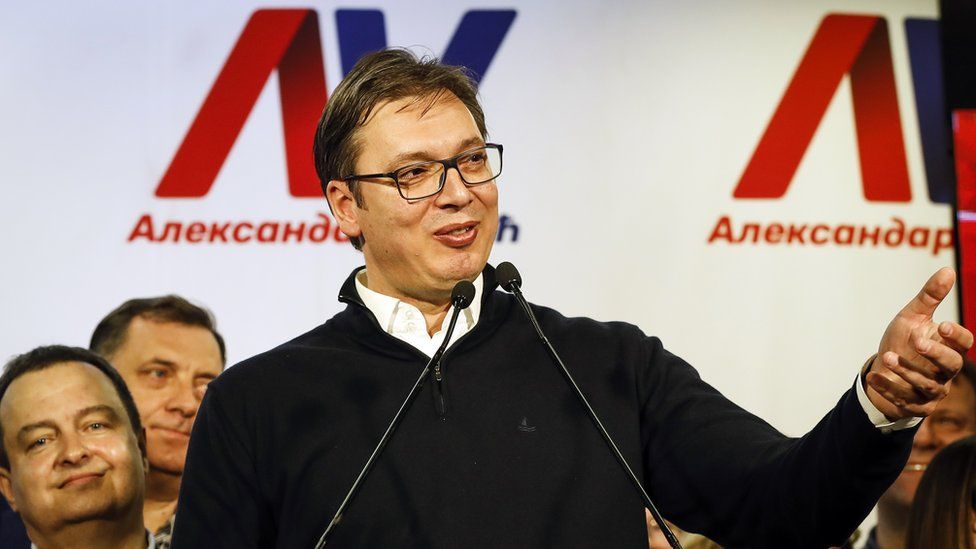-

-
-
Loading

Loading

Aleksandar Vucic has been a dominant figure in Serbian politics for the past decade, holding positions as prime minister and later as president. His supporters view him as a pragmatic leader who has bridged divides within Serbia and overseen significant economic growth. However, critics argue that he has consolidated power in his own hands and undermined democratic values. Vucic is currently serving his second and final five-year term as president. Despite ongoing mass protests and international pressure to resolve Serbia's conflict with Kosovo, he recently called for early parliamentary and local elections. His party, the Serbian Progressive Party (SNS), is expected to be returned to power, but a united opposition is aiming to make gains, particularly in the mayoral race in the capital city, Belgrade. A victory for the opposition could weaken Vucic's authority. Some, like Zorana Mihajlovic, who served as deputy prime minister but has since fallen out with Vucic, view him as a populist on the path to becoming a dictator. The watchdog organization Freedom House currently rates Serbia as only "partly free." Vucic was born in Belgrade in 1970, during the time when Serbia was part of Yugoslavia. His family fled Bosnia due to persecution from Croatian fascists during World War Two. He spent some time living in the UK in the 1980s, where he learned English. Vucic joined the far-right Radical Party at the age of 23, influenced by Serbian ultra-nationalism and football hooliganism. The party sought to establish a Greater Serbia by taking land from neighboring countries. In 1998, Yugoslav leader Slobodan Milosevic appointed Vucic as his information minister, during a time marked by ethnic cleansing, wars, and sanctions. Following their time in power, Vucic and other former members of the Radicals founded the Serbian Progressive Party (SNS) in 2008. Vucic underwent a public transformation, renouncing his previous ultra-nationalism and expressing his intention to lead Serbia into the European Union. However, Kosovo's declaration of independence in the same year was not recognized by Serbia. Throughout his political career, Vucic swiftly rose to power and consolidated his rule. Critics argue that he has eroded democratic institutions, while Vucic's supporters credit his governance for unprecedented economic growth and stable relations with Kosovo. He has also cultivated relationships with various geopolitical powers, expressing a desire for Serbia to join the EU while maintaining close ties with Russia and encouraging Chinese investment. His opponent in the upcoming elections, Serbia Against Violence (SPN), has gained traction by capitalizing on public anger following two mass shootings in May last year. However, Vucic remains confident of victory and accuses his rivals of being solely focused on removing him from power.